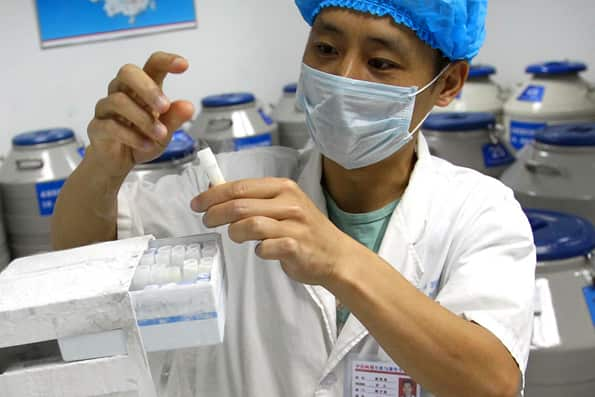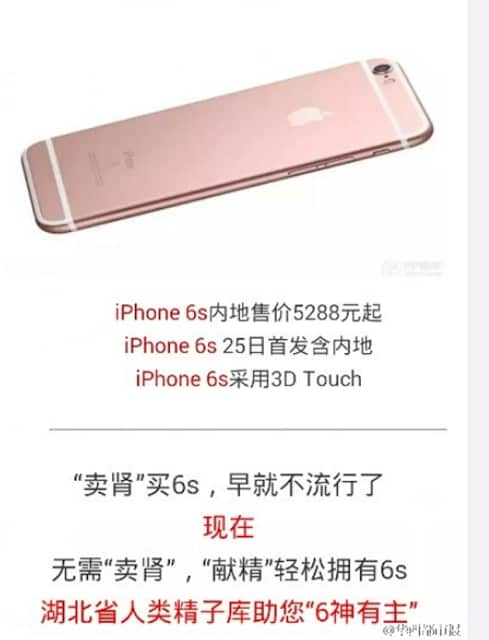Sperm banks in mainland China are urging young, virile men not to “waste” their sperm, but to come forth and be generous. However, getting fluid contributions from the male public isn’t easy when a country whose cultural, social and economic factors around sperm donation deters its public from giving their loads.
However, getting fluid contributions from the male public isn’t easy when a country whose cultural, social and economic factors around sperm donation deters its public from giving their loads.

Xi Jingping wants YOU to join the Chinese sperm banks (Getty) Source: Getty Images
Although both, the scale of semen storage and number of donors has increased in China in the past several years, the gap between donor supply and recipient demand is still strikingly large. As nearly 10 per cent of men in China are infertile, and there is a growing acceptance for same-sex relationships and many reproductively challenged couples turn to assisted infertility technology. In 2011, it was reported that over 10,000 couples hoped to undergo the medical service. In order to find new recruits, the Chinese government have appealed to potential donors with patriotic advertisements which read, “Show your compassion” and “Help mitigate the country’s aging problem.” However, with various social and cultural pressures limiting the number of sperm donations, engaging with the public on this issue is an ongoing challenge.
In order to find new recruits, the Chinese government have appealed to potential donors with patriotic advertisements which read, “Show your compassion” and “Help mitigate the country’s aging problem.” However, with various social and cultural pressures limiting the number of sperm donations, engaging with the public on this issue is an ongoing challenge.

(Getty) Source: Getty Images
Chinese sperm banks have stringent screening tests that disqualify nearly 50 per cent of willing participants. Any samples that reveal sexually transmitted infections instantly bars an eager donor for life, regardless if their symptoms have been treated. As approximately 120 000 000 people in China carry the hepatitis B virus, a significant portion of potential donors do not meet the standard that these banks require.
There is also a cap on the number of times a successful applicant can donate. Like many sperm banks around the world, China has a policy to limit the number of children who can be born to one donor, so that the risk of inadvertent half-sibling unions can be controlled. Also like other countries, commercialisation of human gametes is legally prohibited in China and donors are not paid for their contribution. While donors are motivated by the humanitarian desire to assist infertile couples, at least 50 per cent were reported to be in favour of receiving payment for their 'services'.
Socially and culturally, China operates in a way which discourages men from using these services. According to a report on China's ethical debate on donor insemination, biological links and order of succession are very important in Chinese culture and infertility is considered incredibly shameful. For a man to be serving as the genetic link between a husband and his family is often perceived as very embarrassing, and the overall outlook on family ties and reproductive health disparages men who can help people wanting to bear children. This cultural importance placed on the vitality of sperm also makes some men reluctant to 'give any away' - even with the incentive of a free iPhone 6 (a former marketing campaign from the Beijing Human Sperm Bank.) Translation:
Translation:

Advertisement reads; "Shanghai sperm bank will make your iPhone dream come true!" Source: Shanghai Sperm Bank
"Trade your sperm for iPhone 6s?
"Sell a kidney to buy an iPhone? Well, out of fashion...
"NOW
"No need to sell a kidney, you can still get iPhone!
"Shanghai sperm bank will make your iPhone dream come true!"
To combat the myriad of issues facing Chinese sperm banks, they have taken to persuasive nationalistic messages such as, "Donating sperm and donating blood are the same thing." and "It's all about giving back to society."


